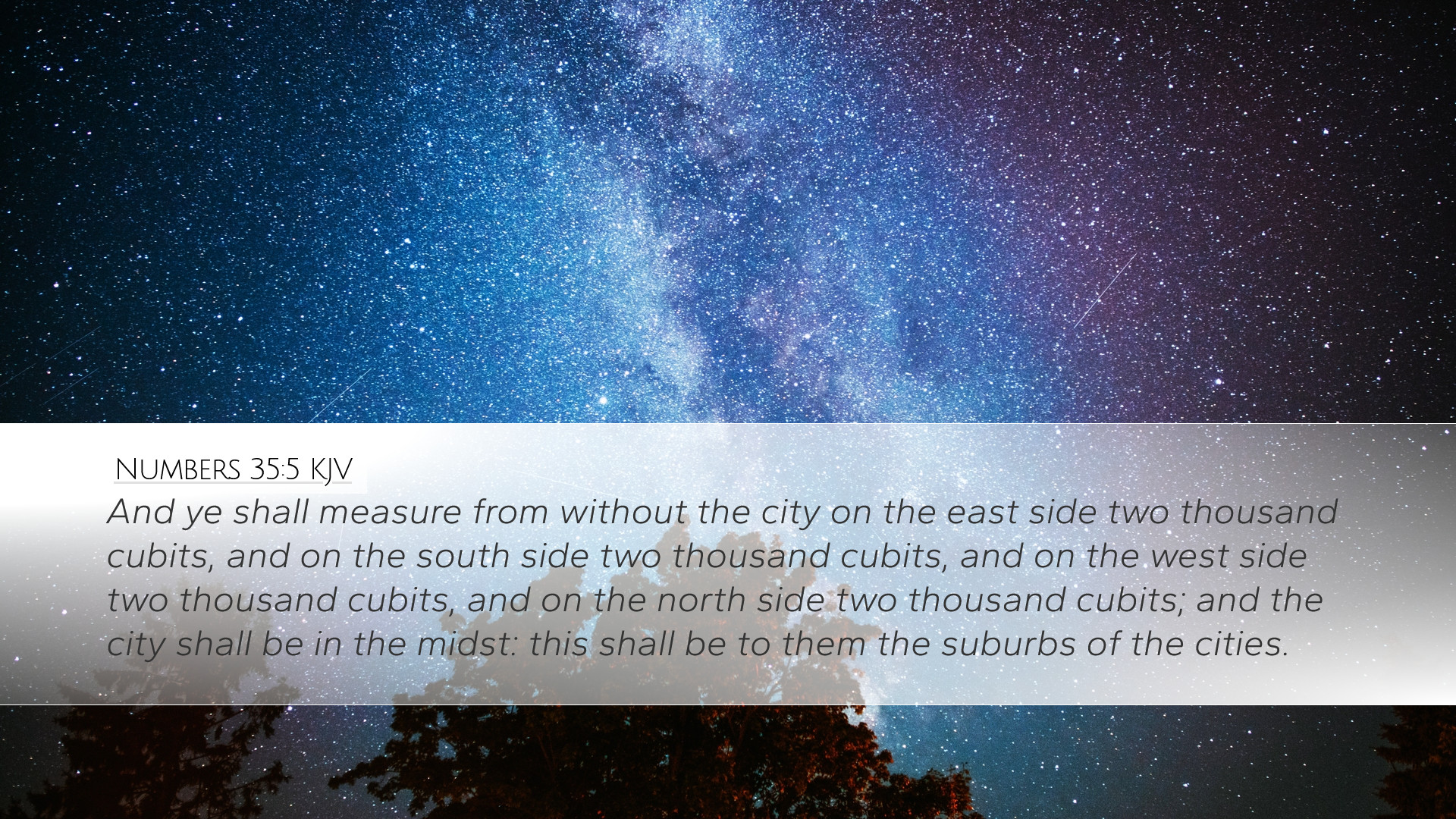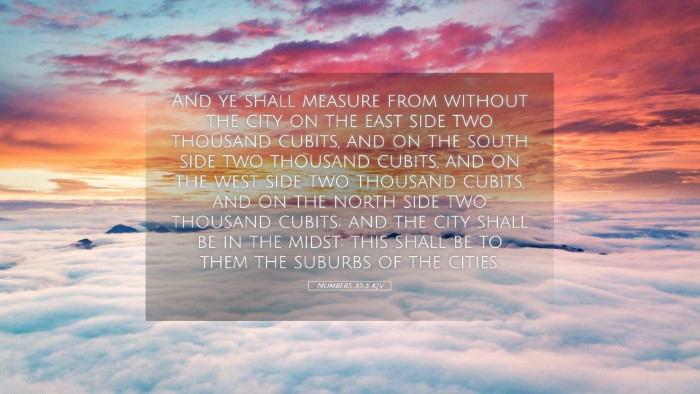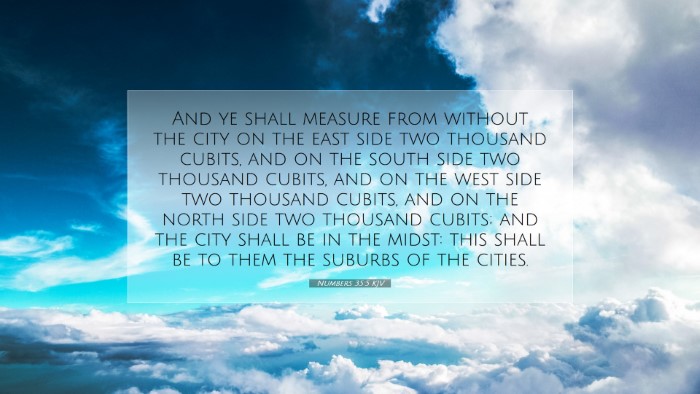Commentary on Numbers 35:5
Numbers 35:5 states:
"And ye shall measure from without the city, on the east side two thousand cubits; and on the south side two thousand cubits; and on the west side two thousand cubits; and on the north side two thousand cubits: and the city shall be in the midst of it: this shall be to them the suburbs of the cities."
Introduction
In this verse, God provides precise instructions regarding the allocation of land surrounding the cities of refuge. This particular command highlights God's concern for both justice and mercy within the Israelite community. By examining the context and commentary from key biblical scholars, we gain deeper insights into the significance of these measurements and their implications for the broader themes in Scripture.
Contextual Understanding
Numbers 35 forms part of Moses' final instructions to the Israelites, as they prepare to enter the Promised Land. These instructions are pivotal, demonstrating God's ongoing guidance concerning holiness, justice, and community relationship.
The Cities of Refuge
The cities serve as places for those who unintentionally commit manslaughter, allowing them to escape the avenger of blood. This provision points to God’s mercy, balancing the need for justice and allowing for the possibility of rehabilitation and restoration.
Scholarly Insights
Matthew Henry's Commentary
Matthew Henry emphasizes that the careful delineation of the city limits underscores the divine order in the Israelites' settlement. He notes:
"The suburbs of the cities were for the pastoral activities and the sustenance of life, which signifies that even within the structured society, there were provisions for the individual’s needs."
Henry also discusses how these measurements helped ensure that the cities of refuge were accessible, emphasizing God’s intention to provide safety and sanctuary for those in need.
Albert Barnes's Notes on the Bible
Albert Barnes elaborates on the geographical layout provided in this verse, indicating:
"The specification of the measurements of two thousand cubits on every side created a buffer zone around the city, emphasizing the importance of separation from the sanctity of the city’s purpose."
Barnes further argues that this separation implies God's holiness and the need for protection against uncleanness, reflecting the broader themes of purity and separation in Israelite law.
Adam Clarke's Commentary
Adam Clarke adds depth to our understanding of this text by noting:
"The city being the center of the suburbs serves as a metaphor for the community, with the suburbs indicating diverse lifestyles yet all under the governance of God's law."
Clarke connects these physical boundaries to spiritual truths, suggesting they illustrate God's desire to guide His people in both their communal and individual lives.
Theological Implications
This verse carries profound theological implications regarding divine justice, mercy, and the physical and spiritual boundaries that govern human relationships. God sets specific guidelines, demonstrating that while human life is sacred, there are mechanisms in place for restoration and protection.
Justice and Mercy
The cities of refuge reveal God's justice as He delineates responsibility and consequence for actions while simultaneously expressing mercy by providing a safe haven for the penitent. This duality remains a significant theme throughout Scripture, exemplifying God’s character.
Community and Individuality
By bifurcating the city and its suburbs, the text also illustrates the balance between community and individuality. Each Israelite has their place within the broader society, yet their spiritual and physical needs are acknowledged and addressed by God's laws.
Conclusion
Numbers 35:5 is not merely a legal stipulation; it is a testament to God's character and His desire for a just society. By reflecting on the insights from Matthew Henry, Albert Barnes, and Adam Clarke, we can appreciate the depth of this command in shaping our understanding of God's profound commitment to His people's welfare.


